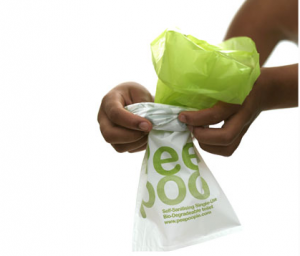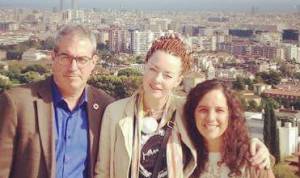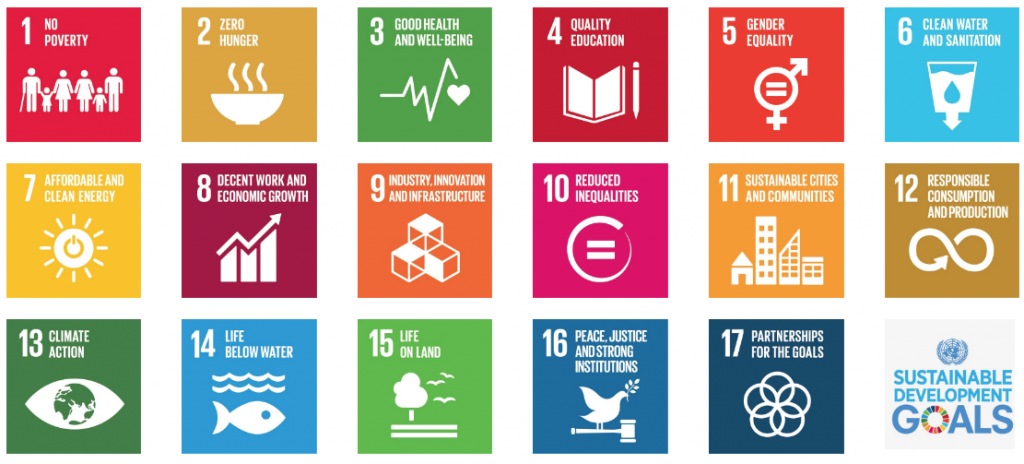Last week my second year MBA students had the pleasure of listening to Camilla Wirseen who had travelled from Nairobi to talk with them about the PeePoo project that she had been involved with as well as her latest project called The Cup. Camilla has spent the last 10 years going back and forth between Stockholm and Kenya in an effort to improve the lives of the millions of slum dwellers across the country. Her story and commitment showed a sharp contrast with the almost unrealizable sustainable development goals put forward by the United Nations in September 2015.
Sustainable Development Goals
The 17 Sustainable Development Goals were approved by 193 countries as the successors to the 8 millennium goals which, in theory, were to be achieved in 2015. Each one is further divided into a number of targets creating a list of 169 specific targets and many are supposed to be achieved by 2030.
The reality is that it is very difficult to see a path to achieving targets such as the eradication of hunger and poverty or the end to gender bias around the world in the next 12-13 years, if ever. What was very interesting is to listen to MBA students talk about what, in their view, were the most important of these goals and which should be tackled first. At issue is which goals were pre-requisites to achieve the others and how the different goals would play out over different time scales and across different parts of the planet with different cultural norms and levels of economic development.
For Camila Wirseen, water and sanitation are clearly the most urgent.
Sanitation First
Ms. Wirseen sees it as self evident that water is the most essential requirement for life and that clean and safe water is only possible if people have adequate sanitation. According to the United Nations, 2.4 billion people lack access to basic sanitation services, such as toilets or latrines and more than 80 per cent of wastewater resulting from human activities is discharged into rivers or sea without any pollution removal. Even more dramatic is the fact that each day,nearly 1,000 children die due to preventable water and sanitation-related diarrhoeal diseases.

The problem is that many of these people live in informal settlements or slums in which there may never be the combination of good government, property rights, and investment capital necessary to build modern sewage and water treatment facilities of the kind we take for granted every day in the West. The solution, created by Anders Wilhelmson and Camilla was a fully biodegradable toilet system offering slum dwellers a clean, secure, and private solution to the problem. The basic idea is a double bag system made of natural materials with a few grams of urea which eliminates fecal toxicity and allows the entire bag to be used as fertilizer.
Peepoo, as the company was called, was founded in 2006, achieved global recognition and raised over €12 million in start up capital setting up its offices and manufacturing facility in Stockholm. Camilla herself started up a pilot project in Kibera, the world’s second largest slum outside of Nairobi and was achieving 95% customer satisfaction rates. The company’s board, however, became frustrated with the difficulty of getting faster and broader acceptance of the PeePoo and eventually pulled the plug on the project. It was finally transferred to the Swedish branch of International Aid Services, a faith based charity group, in 2016.
For Camilla, besides the problems associated with using shareholder capital to solve social problems, the central challenge of implementing Peepoo was resistance by the international development community and sanitation experts who did not see the solution as dignified or fitting into their mental models of how to fix the problem. While most people would agree that modern toilets and sewers are a better solution the fact is that it may take 50 – 100 years before such infrastructure is built out for all who need it.
Girls and Women
As Peepoo entered a difficult period in 2014, Camilla herself became increasingly appalled at the horrific situation that affects girls and women in the poorest parts of the world starting with the beginning of their menstrual cycle. The problem is that feminine hygiene products, that are taken for granted in the west, are economically out of reach for millions of girls and women and they resort to anything, including prostitution, to pay for them. Camila ended up leaving Peepoo to focus exclusively on this problem and has trained more than 13,000 girls in the use of a re-usable menstrual cup made from medical grade silicone which effectively solves the problem. The organization provides cups and a holistic training program to educate girls (and boys).
Three lessons

Camilla’s story shows three things about how to achieve the well meaning goals of the United Nations. First is the critical role that technological innovation can play in solving some of the world’s most pressing problems. The other is how difficult it can be for the current set of stakeholders involved in solving these problems to embrace new technology and systems thinking. The last, and most important is the difference individuals can make if they put their heart and energy into making things happen.



Good job Camilla,the impact of what you are doing in Kenya is immense…Thank you!!
Dear Professor Rosenberg,
Thank you for your blog highlighting the work of Mrs Wirseen. It shows that the human spirit is still unbeaten by the powers of the market economy. It also shows that working with that same market economy and the technical innovation that is inherent to it the quality of life of millions can be improved. By the stubborn spirit of one lady.
The only dignified way forward in world economy is through people who cling to our deepest ethical dignity, the understanding that if you help a person with no resources you might win a friend and maybe a client in the future.
And if you don’t win another client at least you helped your fellow human.
Marcus van Slageren, Brighton U.K.